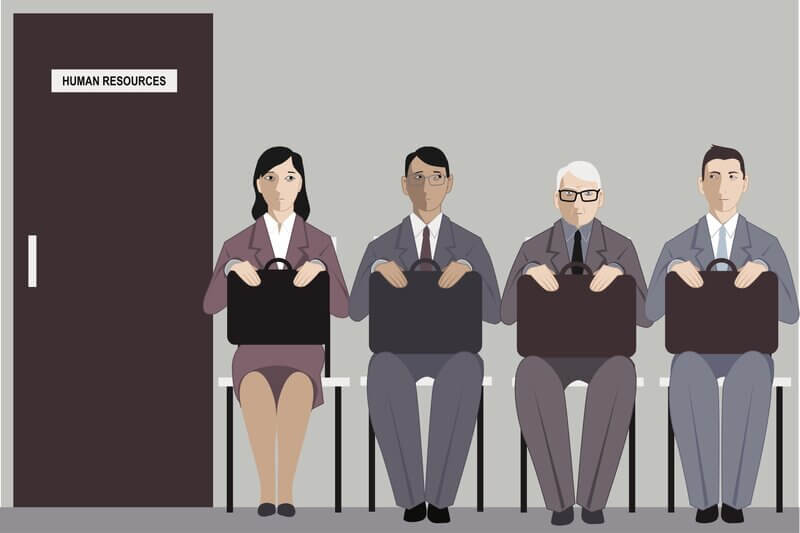
Age Discrimination In The Workplace: What Is It And How Do We Resolve This Issue?
10 Mar, 20235 minutesAgeism, another name for age discrimination, is one of the most prevalent types of unfair tr...

Ageism, another name for age discrimination, is one of the most prevalent types of unfair treatment at work. Even when it's inadvertent, discriminating against an employee based on their age can have serious practical and legal repercussions for your company.
One of the nine protected characteristics included in the Equality Act of 2010 is age. The others are age, colour, religion or belief, sex or sexual orientation, disability, gender reassignment, marriage and civil partnerships, pregnancy and maternity, and others.
Despite regulations like the Age Discrimination in Employment Act 2010, this problem still exists and has negative repercussions on the person. People expect to be able to work for longer because they are enjoying longer, healthier lives. There are still about one million persons over 50 who want to work but are unable to find employment, despite the fact that around a third of those who are already employed are between the ages of 50 and 64 and another 1.2 million are over 65.
Understanding Age Discrimination?
Age discrimination essentially means you will judge an individual’s fit for a job based on their age rather than their skillset and ability. This can occur when employers will deny a candidate a role if they are too old or too young or they will get denied a promotion based on their age.
Here are a few signs of age discrimination to look out for in the workplace:
- Young workers are automatically given learning opportunities, but not older ones. This can involve attending professional or industry conferences, receiving funding for continuing education, or taking part in educational coursework.
- Being overlooked or passed over for challenging assignments. This may also look like an unfair share of unpleasant or tedious assignments given to older employees.
- Being excluded from customer meetings or work events.
- The assumption, whether explicit or implicit, is that because you don't have young children at home, you are not entitled to take time off for family obligations.
- Insulting remarks and statements about age. This may be presented as subtle and light-hearted, with others making jokes about things like your age, retirement plans, slow typing, gasping for air as you climb the stairs, etc. Or, it could be outright hostile (such as sarcastic remarks that corner you or pressure you to leave your job to make room for another qualified candidate).
- Being passed over for promotions and pay raises. This one can be challenging, just like in our example above. Different raises and promotion decisions may indicate age-based discrimination, or they might be a reflection of individual performance.
What Is the Impact of Age Discrimination on employers’ duties and an employee’s rights?
According to the law, an employer is prohibited from treating employees or job applicants less favourably or disadvantageously in any way on the basis of their age. Additionally, they have a responsibility not to victimise or harass someone because of their age.
In turn, the employee or prospective employee is protected from unfair treatment because of how old they are or, in some cases, how old they are thought to be or the age of someone they are associated with.
No minimum length of employment by an employee, or any employment at all for a job applicant, is required to claim age discrimination. It is potentially unlawful to discriminate against someone from the point a job role is advertised through to the last day of employment and even beyond, including references.
The law protects the job applicant or employee in relation to various key areas, including the following:
- Recruitment
- Training & promotion
- Pay or other terms & conditions
- Performance management
- Termination of employment
- Retirement
How can you ensure your recruitment processes don’t discriminate on grounds of age?
Look at your job advert
Do the words "recent graduate," "dynamic personality," "lively and energetic," or "three to five years' experience" reflect an age bias? This kind of wording implies that you're searching for a young worker, thus an older worker with more experience is probably not going to apply. Or, perhaps more accurately, wouldn't be taken into account even if they did apply.
Does your job posting mention that you offer flexible scheduling or that you have a sizable pension plan? The size and age range of the applicants is likely to rise with this type of phrasing.
Look at your application form
You may not ask for date of birth, but does it ask for ‘full work history’? This will clearly indicate the approximate age of the applicant. Would ‘relevant work history’ be a better phrase?
Look at your interview process
Does your interview panel have CV’s or application forms with the information which can identify the applicant removed? Does your interview panel have a list of questions that are asked of every applicant? Does your interview panel consist of people of varying ages? Are you sure your interview panel doesn’t base their opinions on stereotypes of older workers?
Look at your workplace culture
Does your company actively look to build an age-inclusive workforce? This should be an attitude that comes from the top down and applies to everyone.
If you can get this right and have a more age-inclusive recruitment process, giving you a multi-generational workforce, you are likely to benefit in a number of ways:
- Increased productivity
- A workforce who shares their knowledge and experience
- You’ll avoid discrimination on grounds of age for both older and younger workers and job applicants
- Increase your reputation as a company that is not only committed to the principles of equal opportunities, diversity and inclusion but also goes the extra mile to ensure that all age groups are represented in your company.
Remember – older workers can be good for business
It has been found that companies which have a 10% higher share of workers over the age of 50 are 1.1% more productive. This is mainly due to lower job turnover and the general work experience of older workers. They help in knowledge and skill sharing meaning that younger workers benefit from their expertise, ultimately helping the business to thrive, with approximately 75% of employers in England declaring that utilising the skills and experience of older workers is crucial to their success
Conclusion
This is a serious issue that occurs throughout the workplace and does affect individuals both older and younger. To tackle this issue employees and employers will have to work together to come up with strategies to successfully address this issue to create a fairer environment for all. With increased education on this issue in workplaces, it can help lower the rate and increase equality.









